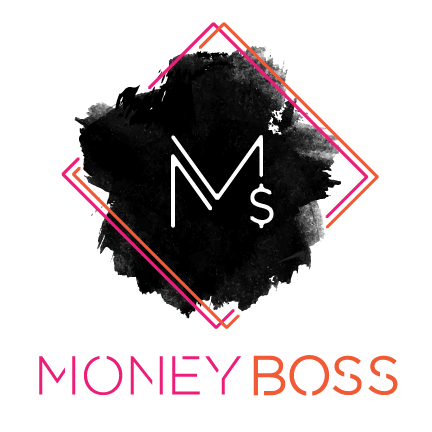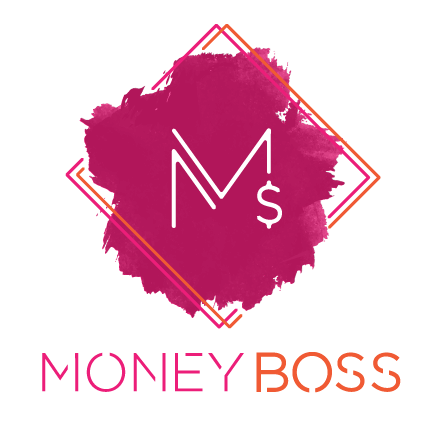Today we are continuing our discussion on alternatives to mint.com with my guest, and certified financial planner; Jennifer Bush.
In going through this process of figuring out what I will do once Mint goes away, I have been looking to understand and review how I used all the data Mint gave me. I have been considering how often I come back to certain parts of it and asking myself if I need all those details all the time or can I do with less each month?
Tiller Money is really suitable for someone who loves spreadsheets, and wants to spend time digging into their detailed financial data. If you feel you would benefit from having a complete picture of where all of your spending is this option may be just what you are looking for.
Tune in to learn more…
Anna’s Takeaways:
- Using Tiller For Personal Finance Management (04:21)
- Personal Finance Apps And Security (11:30)
- How Secure Are These Websites? (14:36)
- Sign Up With Up To Five Spreadsheets (18:27)
Meet Jennifer Bush, CFP, an experienced financial advisor at Mainstreet Financial Planning since 2021. With over 15 years in finance, including 13 years at a wealth management firm, Jennifer is not just about numbers—she’s passionate about simplifying complex financial situations. Armed with a CFP(R) and an Accounting degree, she’s a single mom who, through smart money management, bought her own condo in 2021. Jennifer specializes in empowering women, particularly those facing life transitions. Beyond work, she enjoys nature walks, health and nutrition, and quality time with her daughter.
- Rate, Review, & Follow on Apple Podcasts
- Money Boss Parents! Welcome to Anna’s Money Boss Parent podcast, your go-to resource for mastering money management while raising a family. Join me as we explore practical tips, expert insights, and inspiring stories to help you achieve financial success and create a brighter future for your loved ones. Don’t forget to subscribe, rate, and review the show to support our mission of empowering parents like you to take charge of their finances and build a prosperous life for their families. Let’s thrive together on this incredible journey!
- Links mentioned in this episode
Navigating Tiller Money – Article by Jennifer Bush, CFP
- FREE GUIDE- Kid Money Boss: School isn’t teaching my son about Money. It’s up to us Parents. Here are 9 tools I am using to team my son, everything I never learned as a kid.
- Websites:
Transcript
Hey, money boss, parents, I want to continue a discussion about alternatives to mint.com. And in this episode, I'd love to spend some time discussing with you and my guest, Jennifer Bush, a certified financial planner at Main Street financial planning, how she uses a program called Tiller money. One of the things that I've discovered in going through this process of figuring out what I will do next, once mint goes away, is to really understand and sort of review what and how you actually use your data, how often you come back to it, what are your habits. So I think going through this exercise and understanding how this program works, for example, Tiller money is really suitable for someone who wants to have a lot of data, who loves spreadsheets, who wants to dig into the details. That's not me. But that might be somebody like you who would benefit from having that kind of information to give a complete picture of where all of their spending is. So let's dive in, understand how this program works, how you can use it, what are the options and how you actually also get your if you are a user of mint.com budgeting platform, how you can get your data into it. Let's look at some of the other budgeting apps and how you know they're compared to mint. So hopefully that will help you make a decision. Where do you go? And you know, how do you actually make that decision? I was so excited when I found this, this was on a Wall Street Journal, I'll find the actual article, but it was so excited to find some data of how people actually truck. The article was about tracking expenses, spending right in income, but I've really never had like the statistic. Because one of the things that we all hear as advisors from our clients is like, we're, like, we're so bad with tracking our expenses, or like I looked at my spending plan or like, if we if you come back to see us once a year, they're like, Okay, well, this is the time I do it. And like it always sort of is that conversation. But anyway, so let me highlight for you what is really happening. This is the reality of what the whole budgeting world looks like. Just about sick little over 60% of people who actually pay attention to their finances and track their expenses, use online bank statements to track their data. I mean, we all download their statements, right? We'll get them in the email. So I kind of question that, right. Some of us get statements in the mail. So that's about like 28 or so percent. Done About 25%. Use spreadsheets, right? So you could say like, if your main street client, we also use our spending plan to hopefully help you track expenses I'm getting, I'm getting to a point here. A bank budgeting tool, you probably have seen that over like the last few years, banks starting to offer, you know, ways for you to keep track of your expenses and all of that I have not explored it. But I've seen in you know, various banks, I have a few that, you know, you can kind of do that. Now, this is where we're lending here are these third party budgeting apps. So min falls under that category we're going to talk about you need a budget, we're gonna talk about tiller. So as you can see, it's like a very small percentage of people not under like, under 10% actually use those apps. So anyway, cuz I was I was stressing out for a bit once I heard that man was going to him like, oh my god, the world is ending. But the reality is rather different. So wherever you fall into on this spectrum is okay. As long as you really know what you're spending money on, I think I want to end on that positive note. But let's look at a couple that we as a team think would be worth for you to consider. Depending on your budgeting and personality, how much time you want to dedicate to all of that. So hopefully, we can highlight all of those for you. So Jennifer, I'm gonna pass on to you because you are the tiller Pro. And, yes, please take it away.
Jennifer Bush:been using Tiller since about:Anna Sergunina:can you share is a question. Can you share this with other people? Like if you have
Jennifer Bush:oh, yeah, yeah. Thank you. Thank you, Anna. I had I had those slides, but I'm not using them. So yeah, one of the features that I liked the most was it shareable. So maybe, for example, I am in a relationship and I have a Google Sheets under my name, my spouse can go and look at that. Or I could share the file with my financial advisor, they can go in and view only, they can actually make edits to the categories if they needed it. Like if you hired them to do this work. They can't populate it for you. But they can manipulate the data for you. So you can share it with her with your financial adviser or with your spouse or with somebody else. And you basically give access to your Google Sheet. And they can go and take a look at it. And it's really, really helpful for the financial advisor to kind of see what's been going on. And then we can take a there's a there's a reporting tool called What does that reporting tool where you, you can pivot table, you can do so many things with Excel, if you're an Excel guru, or a spreadsheet guru, or there's so many things you can do with that giant spreadsheet full of data. Sometimes I have to slice and dice and say, Okay, well what did I spend on this last year? You can search it, you can filter it by category, you can filter by dollar amount, you can, you can run so many different kinds of reports. It's unlimited what you can do with tiller. And the customer service is great. I've when I was first starting out with this, I had so many questions. So they have their spreadsheet. I mean, they have their web web page where it shows how to do it step one, step two, step three, step four. and you have questions, you can send a message to them. And they usually respond within 24 hours a human responds through email. And you can actually type in to any any Google website, you can say, Tiller money, and then write your little question and it pops up because they have such a big web presence on their website, they have all these help features all these videos, and then people on the community in the tiller community have responded. So if you just do that I was so surprised Tiller money in the you write the question you have, you can find the answer, like within a few minutes. So I really liked that it's easy to use, they're all based United States, you're not dealing with somebody in a different country trying to support this product. So I mean, I liked it, I really, really do like it, and I use it all the time. The other thing that I like is every day I get it, I get an email. That's my daily summary. So you don't have to get this, but you can sign up for it. And it basically has, what transactions were today. So you can see if there's any fraud on your account, you can say, what are the balances in your accounts, so you can just have a visual every, every single day, you know what's going on? And usually I delete them. But sometimes I see things that look like, why is that and then I go look it up and you can get the details. And then of course, you know, if you get paid once a month, then you can take a look and see how your balances are doing and, and you know, just manage your finances a lot better, just by seeing her.
Anna Sergunina:So this is just to track expenses and income or does it have other like features like you can track your net worth and you know.
Jennifer Bush:it has a net worth tracker in it. With tracker, it's got a budgeting, it's got a monthly budget to actual report, it's got an annual budget to actual report, I, you can actually add your own spreadsheets in there. So I actually have the planning spreadsheet that I use before I do the budget. So I did like a pivot table last year where I pulled the data in there. And then I looked at it and then I made my own budget and then I put the budget into the budgeting software. So you can add I think people track their their their mileage points in there, you can basically track lots of different things because you can make your own spreadsheet, there's templates out there for lots of different things. The other thing I was gonna say there was one other thing I wanted to say it last year.
Anna Sergunina:So there is no app on your phone that you can download
Jennifer Bush:It's not on your phone, you use Google Sheets, Google Sheets, you have to have a Gmail, I never use it on my phone, I only use it on my desktop. So if you're looking for an app on your phone, Tiller might not be for you, if you want something that's very simple that you don't have to put a lot of work into Tiller might not be for you. Because there is some setup. But I think it's worth it because of the amount of data that you get. But if you're just looking for a high level what's happening, it may be a little bit too heavy handed for you. But for me, nerdy financial planner, I think it's awesome because of the amount of data and functionality that you get.
Anna Sergunina:Great, okay. Yes, I'd like to have a 30 day free trial. So you can kind of play with it and, and explore as we were doing research on where we're going to go and what you know, might be a good ideas for clients. As you can imagine, everybody knows that. Mindy's going away. So every possible, you know, budgeting app out there and put some helpful information about what do you need to know and how do you migrate over? So as I said, I'll have the links in the presentation slides here for you. But basically, as we talked once you got your mint transactions download it. You can Jennifer mentioned that too, you can import that into the database. And I think you kind of take it from there, do all the categories and stuff. So it seems like that transition would be available across all platforms. Some of these apps actually give you incentives to join them. Because as you can imagine, there's lots of clients that are not going to be on mint at the beginning of the year. So but yeah, Jennifer, thank you. Is there anything else? Or we can move on to the next?
Katherine Edwards:We do have a question, if you don't mind. It says I have been using Mint for the last few years. But we are nervous to have all of our financial data connected to these web computer with all the hacking. how secure are these websites? If we wanted to track on our own what would you suggest?
Anna Sergunina:Yeah, so I if you're wanting to their security structures are the same across all of these platforms because they all have to go in and scrape the data. It's even though you are connecting Your credit cards, your bank accounts, you kind of sharing your password. So these programs can go in and just aggregate the data. So it works exactly the same across all of these platforms, they use different data aggregators, I think, would distiller use Yodlee.
Katherine Edwards:Jennifer, you said you only Monarch exists something called plaid. They say go out there and scrape the data, it's View Only they dump it, scrape it, they dump, they scrape it and dump it. And you know why it sometimes breaks whack with Matt and everything else is that the, it's not on the scraping site, it's on the it's the it's the provider, they're not allowing, you know, there might be a dad's down on their system or something. But if you wanted to track it on your own, you could build a spreadsheet, but you're gonna have to, you're gonna have to be very diligent with that in every transaction, put it in the right column, I think it'd be a lot of work. But you know, people who are just starting out with their budget, that's how they do it. Are they are they put on paper, you know, paper, but I think it's pretty safe.
Anna Sergunina:Yeah, one thing to note as well. And you saw saw my chart like that highlighted how people really actually keep track of their spending, I feel like credit cards, credit card companies, and have gotten so much better, with like, giving you a really good urine summary of where all the money is, has been spent. Now, this is granted that you actually use credit card for a lot of your expenses. So I know that we have clients who, you know, really rely on that to get a sense of like, here's where all of our spending, so if you're nervous about plugging in your financial information into the next, you know, program, that might be a way around now what I've read about mint, and you know, people commenting in the industry about why the platform didn't survive, is because they didn't charge money. So that that's like the big lesson that mint team learned is that because they didn't charge money for the program, it was really hard for them to actually, you know, make money on the back end, because I think it costs him like $6 per account per year, to be able to just like provide the free services. But you know, I have not, you know, in all the details of how their back end model worked, and all the advertising and things that they promoted on the platform, because I don't think I've ever clicked on any links that existed in that account. I never signed up for like, anything, so they really didn't make any money on me. And I'm sure there's some other people out there. So what I'm trying to say with this, this, like observation of thought is, I think, I mean, as much as it kind of stinks, you have to pay for our budgeting toolkit, like I'm not used to doing that. It sort of gives you just a little bit more confidence that like, okay, they've got their, their, you know, they have their act together, they, you know, they have all these measures that they want to, you know, work through because to you know, it's it's it's like, I don't know, I mean, I'm not trying to say that I didn't have a viable business, but it just, it just gives me a little bit more confidence that because I'm paying for the service, because I'm paying for the program, there will be layers to go through in case there's something going on with the data. So that's, that's kind of like a little comfort level on my on my hands to think about it.
Jennifer Bush:What I wanted to say, the one thing I forgot to say is tiller. When you sign up, you can get up to five spreadsheets. So if you have a spreadsheet for your personal life, and you have a business, you could create up to five separate spreadsheets and you can link different accounts to different spreadsheets so you couldn't in effect, gather everything and put your business stuff on one and press one another one or you can put it all together. But this transaction is always personal. This transaction is always business. So there's there's just a lot of functionality there. I forgot to mention that.
Anna Sergunina:That's great.



